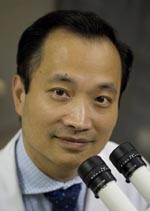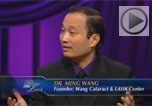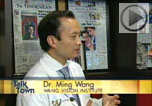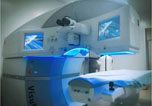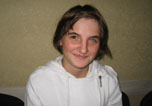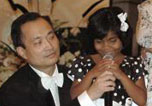- Over 55,000 LASIK and cataract procedures (including on over 4,000 doctors)
- The FIRST center in TN to offer Laser Cataract Surgery
- Introduced bladeless all-laser LASIK to the state
- Implanted the state's first FOREVER YOUNG™ Lens
- The first surgeons in the US to perform a new Intacs surgery to treat keratoconus
- Helped patients from 40 states and 55 countries
- International referral center for cataract surgery and LASIK complications
- Read Dr. Wang's book: LASIK Vision Correction
Why did you decide to have LASIK? Why did you choose Dr. Wang? How has your life changed since your LASIK procedure?
What is your advice for people considering LASIK?
Click to read more
| Home | Print This Page |
Treatment approval process drags on
by Dr Ming Wang, MD, PhD August 8, 2010

Last Sunday, The Tennessean featured an article about Ms. Dawn Gusty, who has been suffering from multiple sclerosis and had to go to Mexico to receive a new treatment, stem cell transplantation. It is frustrating to see that these new treatments — some of which represent the only hope for these patients who desperately need help — are still years away from being approved in this country.
Though experimental procedures such as this do, indeed, need proper scientific studies to establish their safety and efficacy, I feel that the government regulatory approval process in this country is sometimes far too slow. Patients in this country are often among the last in the industrialized countries to be able to receive new and advanced medical treatments. As a former panel consultant to the U.S. Federal Drug Administration Ophthalmic Device Panel, which is responsible for examination and approval of all new eye surgeries in this country, I am acutely aware of this problem.
In addition to expediting the approval process for new medical treatment, we should also be aware of the fact that not
all experimental treatments involve significant moral and ethical issues. Taking stem cells, for example, which have been the subject of much ethical debate in recent years, it should be noted that there are in fact two types of stem cells — embryonic and adult stem cells. The transplantation of adult stem cells (from the patient himself/herself, such as in Ms. Gusty's case, or from deceased individuals, such as those used in the adult corneal stem cell transplantation performed at our vision center) often do not involve significant ethical issues.
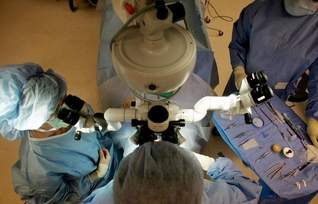
Dr. Ming Wang, center, performs a corneal transplant on Anna Maxwell, 78, of Nashville in 2005. FILE / THE TENNESSEAN
Nonprofit pays for surgeries
At Wang Vision Cataract and Lasik Center, we have been performing adult corneal stem cell transplantation for many years. We introduced the technology to the state and are currently an international referral center. Our research has resulted in presentations in national and international meetings, scientific papers and textbooks.
Adult corneal stem cell transplantation often represents the only hope of being able to see again for many of these end-stage corneal blind patients for whom all conventional surgeries have failed.
For patients who cannot afford these new treatments, we have been able to help them with our 501(c)3 nonprofit sight restoration charity foundation, which to date has helped patients from more than 40 states and more than 55 countries, with all sight restoration surgeries performed free.
In summary, studies and approval processes for new medical treatments should be expedited in this country, especially for treatments of illnesses for which there is no other alternative and for procedures such as adult stem cell transplantation, which does not entail as many moral and ethical issues.
Ming Wang, M.D., Ph.D. (laser physics), is a clinical associate professor of ophthalmology of the University of Tennessee and director of Wang Vision Cataract and Lasik Center, Nashville. Reach him at drwang@
wangvisioninstitute.com, www.wangcataractlasik.com.
Our new texbooks
A 501c(3) charity that has helped patients from over 40 states in the US and 55 countries, with all sight restoration surgeries performed free-of-charge.


